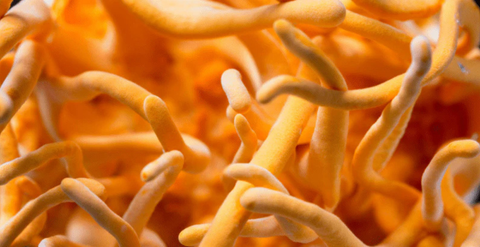Of all the functional fungi out there, Turkey Tail (Trametes versicolor / Coriolus versicolour) is one of the most widespread. You may even happen upon it when out for a spot of forest-bathing! It thrives in hardwood deciduous temperate forests, and can be found throughout the world. It’s typically easy to spot as it looks very much like its namesake – the swirling fan-shaped, multicolour tail of a wild turkey.
It is also notable for being one of the most well-researched of all the functional mushrooms too. Much of this research is focused on its gut and immune supporting properties. This is great news as almost half of us experience some form of digestive distress (1), and supporting overall immune function has never been more important!
How was Turkey Tail used?
Like all the functional mushrooms, Turkey Tail has a long tradition of use in many Asian cultures. Its use has been associated with longevity and spiritual enlightenment. Its immune supporting principles were embraced to help balance immune function and respond to microbial threats. Most often it was brewed as a tea in Traditional Chinese Medicine (TCM) practices to clear dampness, increase energy, and strengthen immune-associated organs, particularly the lungs, gut and spleen (2).
Digestive wellness for immune health
As the Greek physician Hippocrates recognised almost 2500 years ago, good digestive health is central to our overall health and wellness. Overall immune health goes hand-in-hand with a happy gut so taking care of our digestive wellbeing will ultimately also support our immune response.
Turkey Tail is jam-packed with potent antioxidants, including flavonoids and phenolics. Antioxidants work to neutralize the highly unstable, and potentially damaging molecules known as free radicals. These occur in the body as a result of normal cellular processes, as well as from exposure to various environmental factors. If left to run amok, these molecules can hinder the proper functioning of cells and enzymes. Antioxidants are therefore vital to maintain the structural integrity of cells and tissues so they can function at their best (3).
Love your gut
Two of the most well researched substances within Turkey Tail are the polysaccharides PSK (polysaccharide K) and PSP (polysaccharide peptide). These protein-bound polysaccharides support healthy immune function right down to the cellular level. In particular, animal and cell studies have investigated their role in supporting the effect of immune warriors natural killer cells and T cells (2).
These substances also support gut health by acting as prebiotics, which in turn nourish the friendly bacteria in our gut which has a positive effect on the gut microbiome (4). By restoring the healthy balance of good flora in the gut, digestive function is supported and the immune response maintained.
How to use?
As with all functional mushrooms, the key to their success is in daily, sustained use. In the past, these mushrooms were consumed as teas or in soups and broths. Turkey Tail has a mild taste, and it can easily be added to hot or cold drinks, foods, even dressings.
References:
- Belobrajdic, D., Brownlee, I., Hendrie, G., Rebuli, M., Bird, T. (2018). Gut health and weight loss: An overview of the scientific evidence of the benefits of dietary fibre during weight loss. CSIRO, Australia.
- PDQ® Integrative, Alternative, and Complementary Therapies Editorial Board. PDQ Medicinal Mushrooms. Bethesda, MD: National Cancer Institute. Updated 28/07/2021. [PMID: 28267306]
- Bendich A. (1993). Physiological role of antioxidants in the immune system. Journal of dairy science, 76(9), 2789–2794. DOI: 10.3168/jds.S0022-0302(93)77617-1
- Pallav K, Dowd SE, Villafuerte J, Yang X, Kabbani T, Hansen J, et al. Effects of polysaccharopeptide from Trametes Versicolor and amoxicillin on the gut microbiome of healthy volunteers. Gut Microbes. 2014;5(4):458-67.




